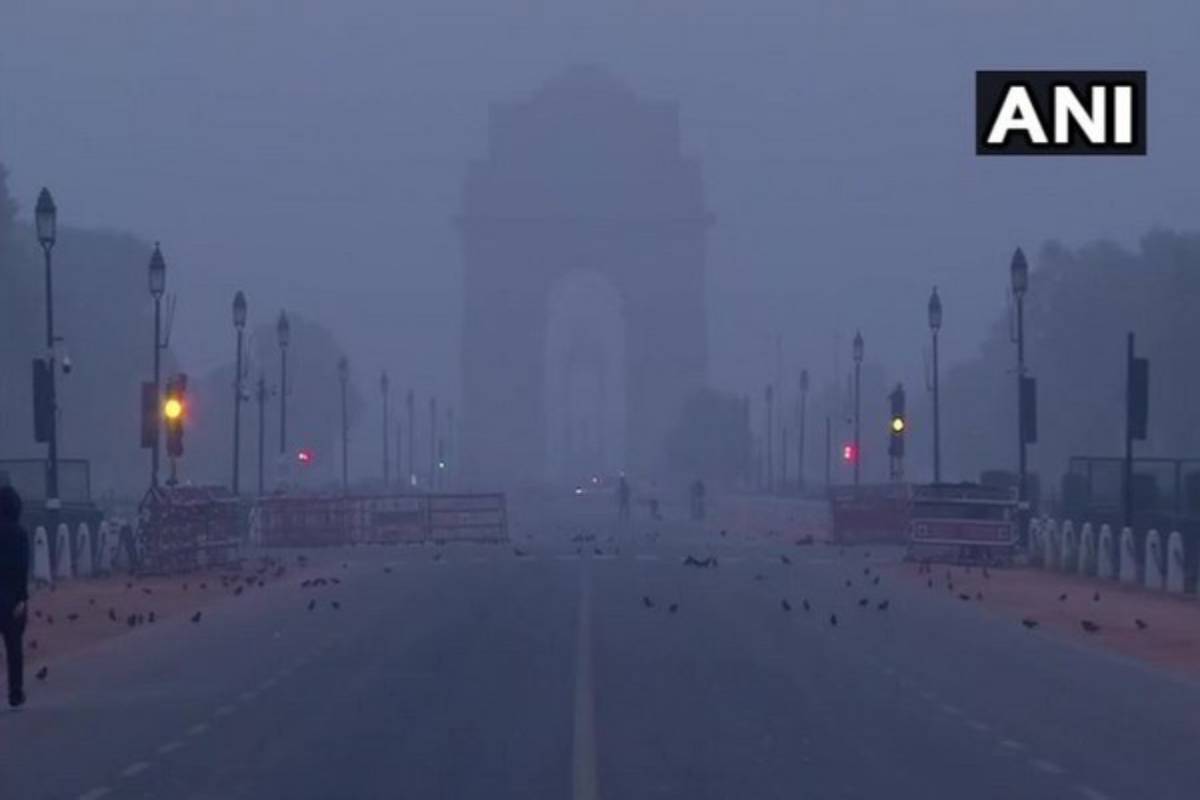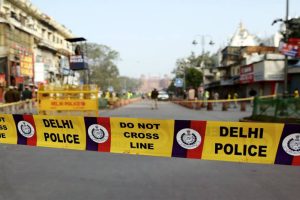The air quality in the national capital deteriorated back into ‘severe’ category on Wednesday morning as a thin blanket of smog covered parts of the city, reducing visibility and the quality of air touching a low level of air quality index (AQI).
The air quality index had been reeling under the ‘severe plus’ category for the past two consecutive days.
According to the Central Pollution Control Board (CPCB), the national capital recorded an Air Quality Index (AQI) at 424 as of 9 am today, placing it in the ‘severe’ category.
Visuals from near India Gate showed people carrying out their daily morning walks, while others jog on the Kartavya Path amidst layer of smog filled atmosphere.
Meanwhile, movement of trains continued amid smog in Delhi. Visuals from New Delhi Railway Station showed a layer of haze covering the area.
13 trains have been running late and 9 trains have been rescheduled as a result of the smog, said the Railways.
As pollution levels continues to remain high, a thick frothy layer of toxic foam continues to float in sections of the river near Kalindi Kunj and Okhla Barrage.
Drone visuals of the toxic foam captured the vast spread of the froth filled with toxic materials, highlighting its extensive coverage and the environmental impact it has caused in the area.
As of 9.00 am, the AQI for Anand Vihar was recorded at 454, Bawana at 459, CRRI Mathura Road at 392, DTU at 418, Dwarka Sector-8 at 440, ITO at 412, Jahangirpuri at 462, Lodhi Road at 382, Mundka at 465, Narela 453, North Campus at 421, Punjabi bagh at 446, RK Puram at 425, Shadipur at 421 and Wazirpur at 464, according to SAFAR-India (System of Air Quality and Weather Forecasting and Research).
Meanwhile, Delhi Police conducted vehicle checks on Tuesday night to ensure the proper implementation of Stage IV of the Graded Response Action Plan (GRAP).
GRAP Stage IV enforces a ban on the operation of Delhi-registered BS-IV and older diesel-operated medium goods vehicles (MGVs) and heavy goods vehicles (HGVs), except those engaged in essential services.Stage IV of GRAP has been in effect since 8:00 AM on November 18, in response to deteriorating air quality in Delhi-NCR.
Delhi Environment Minister Gopal Rai on Tuesday wrote to Union Environment Minister Bhupendra Yadav, urging him to convene an emergency meeting with the Delhi Government, IIT Kanpur, and central government departments such as the DGCA, Ministry of Home Affairs (MHA), and Ministry of Defence. The meeting would aim to discuss the immediate implementation of cloud seeding as an emergency measure.
Rai stated, “The time has come to carry out artificial rainfall to break the smog layer. Last year, the Delhi Government, in collaboration with IIT Kanpur, explored cloud seeding as an emergency measure to induce rain and reduce air pollution during critical periods. This year, we began preparations in August for cloud seeding, but despite several requests, a meeting has not yet been held.”
He emphasised that the smog layer must be dissipated to mitigate pollution effectively. Rai added, “We are continuously working on this. We have banned BS-III petrol four-wheelers and BS-IV diesel vehicles. All trucks and diesel buses coming from outside Delhi have also been banned. Schools for Classes 10 and 12 have been closed. Office timings have been staggered. Regarding work-from-home measures, we are deliberating and will take a decision soon. We are implementing everything within our capacity and will continue to do so. Breaking the smog layer is critical.”
On Monday, the Supreme Court directed Delhi and other National Capital Region (NCR) governments to strictly implement GRAP Stage IV anti-pollution measures as the Air Quality Index (AQI) remains in the “severe” category.





